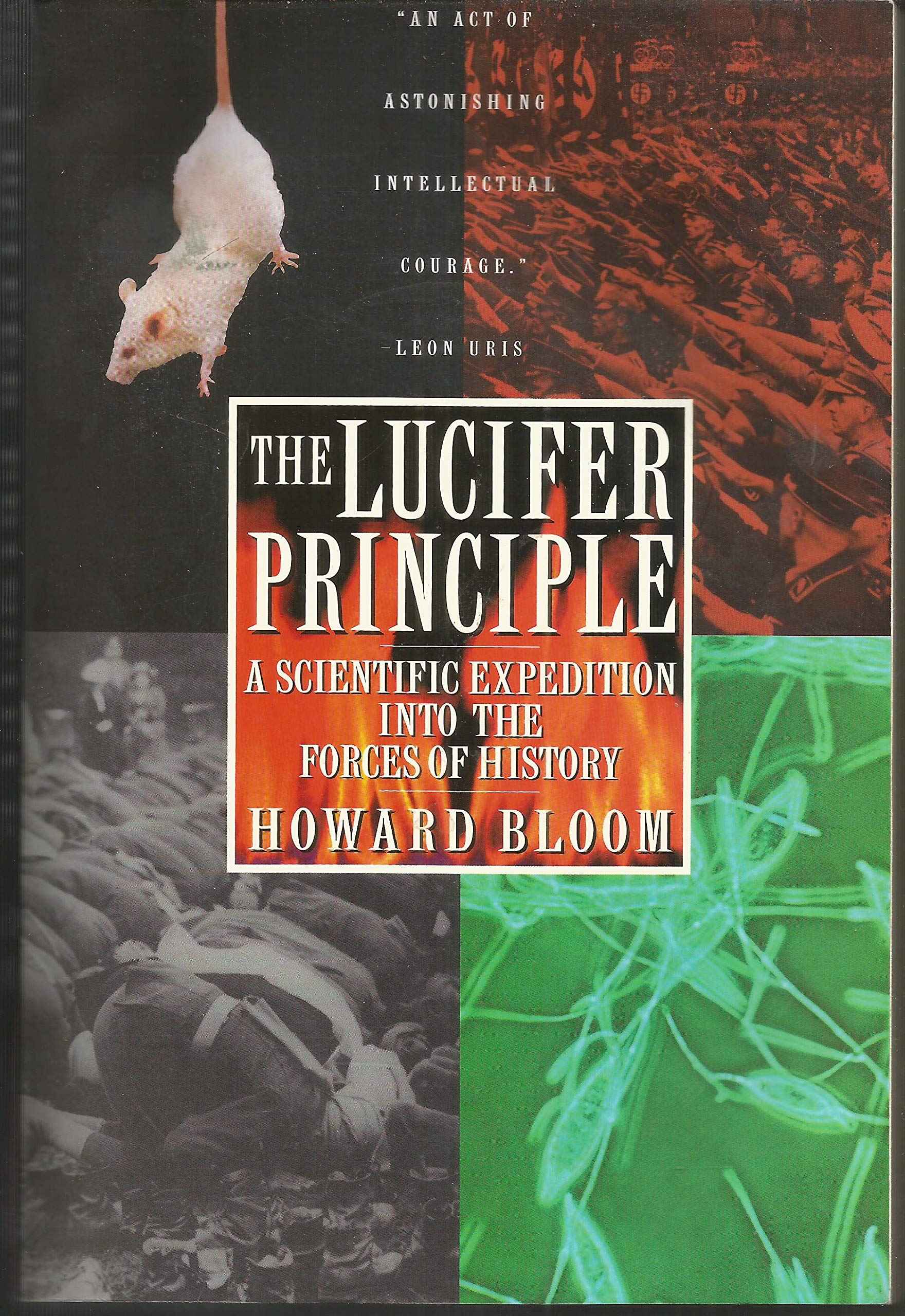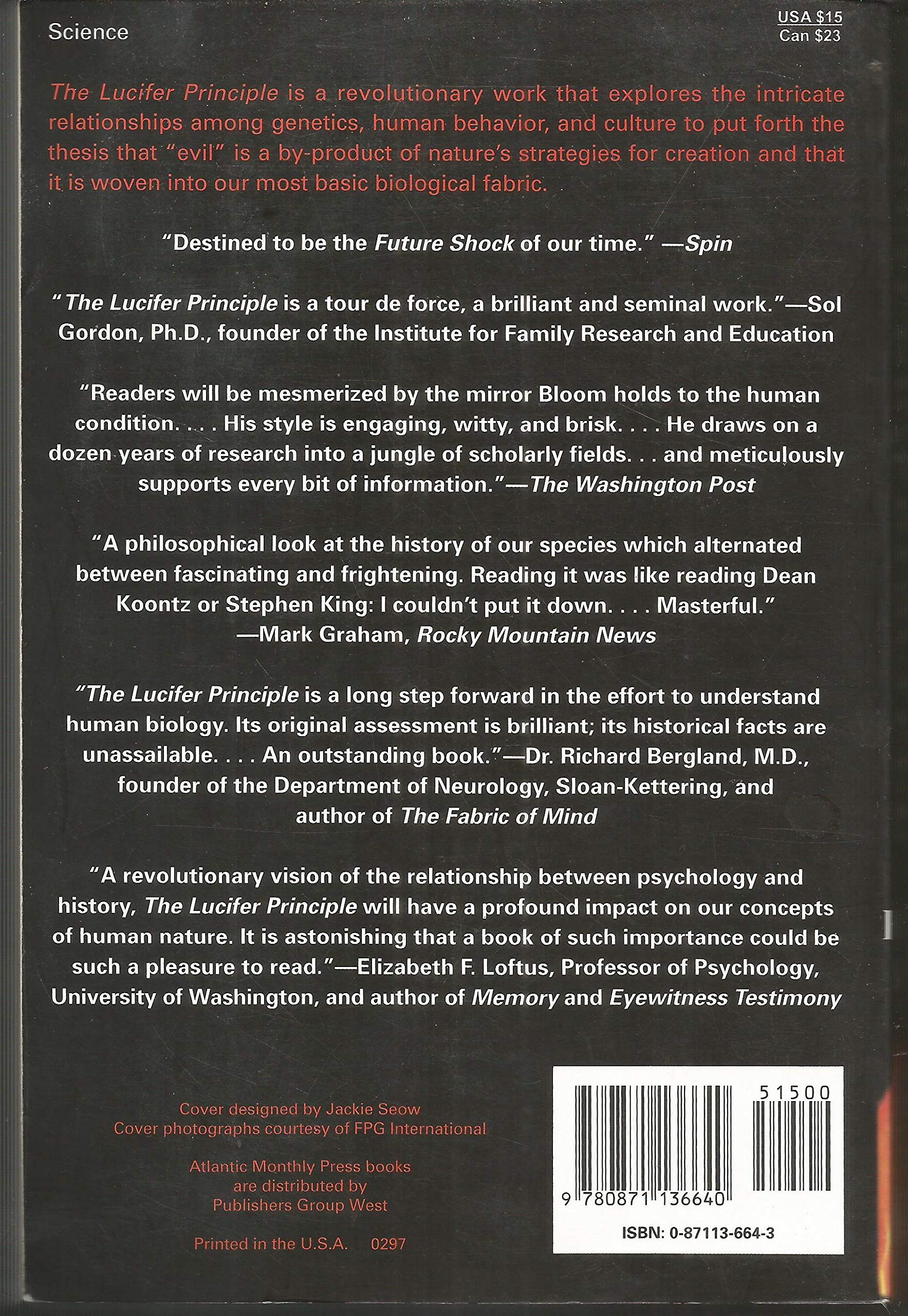Reading the widely divergent views expressed about this book makes me smile. Is Bloom completely correct? No. But neither is any other author I have read. Is he all washed up and shallow? Not unless his style offends you so you reject everything he has to say from the outset. He can a bit harsh on his views on religion and I know of many people who would 'throw the baby out with the bath' due to this. Some of the 1 star reviews below probably bubbled up from this well. And some admit to never having read the book! So from the outset I would say, read it and make up your own mind.My recommendation of 5 stars is because Bloom forces you to think. You may not agree with him, and you may certainly disagree with some of his more forcefully stated conclusions about some groups, but if you are open enough to listen to some arguments which challenge most of what we have been brought up to believe (and therefore becomes what filters what we read), reading this will give you plenty to think about. Personally, I enjoy being forced to think and look at the world in ways that are different and challenging, even if I wind up rejecting their positions. In this, Bloom succeeds wonderfully. Just the vociferousness of some of the reviews below show that, if nothing else, he forced people to think, even if they rejected his views. Just be aware that he sometimes allows his opinions on some things become so strongly stated that if you are a member of the particular group he is lambasting, you may well be offended. Then again, sometimes it is hard to see or admit to the truth when `inside' the group.On that front, some reviewers comment on his offensive references to Muslims and Indians, although I find him is equally harsh on fundamentalists of all stripes, including Christians. I extrapolate Bloom's thesis to essentially warn all of us that ANY group's ideals which help it survive and become successful versus other groups risks becoming the group's foundational beliefs that can, in turn, build barriers to competing thoughts and is capable of doing evil in defense of those ideals. Does he overstate the case for some groups and understate for others? Yeah, probably he does. But that should not, a priori, relegate the theory to the trash heap in its entirety. I, personally, would cite some of our preemptive US policies and actions over the years as serving to validate his theory in a very uncomfortable and unpleasant manner.Bloom's theory, on the whole, attacks our desire to believe in a 'paradise lost,' where ancient civilizations lived in oneness with the land and their neighbors. He attacks the popular notion that most of the world's evils are due to modern civilization and posits instead that they are a part of our nature. And if you take his ideas objectively, strip out the rhetoric which may offend, you might end up, as I do, seeing each of us as being personally responsible for trying to bring about more openness between people, groups and societies.One final note: I loved this book because it forced me to think, even where I disagreed with Bloom or found him overbearing. If you enjoy this type of mental challenge, my other long time favorite that contains some outright errors and problems, but forces you to think and perhaps enables you to view the world in new ways is Julian Jaynes' 'The Origin of Consciousness'. This was widely criticized by his peers, in part because it challenges so many deeply ingrained beliefs and in part because it does extrapolate some things beyond their usefulness as Bloom can be accused of. But both Bloom and Jaynes also are rejected by some because they have the audacity to paint an entire grand theory or worldview that differs from the 'tabla rosa' of western philosophies and religious teachings we are all raised with.Take a chance. Read them both!(Okay, one more final note. Before some of the reviewers paint me as only a reader of `Tom Clancy novels' as one reviewer wrote to castigate those who liked this book, I admit to reading Clancy and other fun novelists. But I also read many more history, physics, anthropology, archaeology, genetics, cosmology and other books in various scientific and factual realms. And Bloom's book is one of the first in a very long time that had me writing notes to myself while I was reading so that I could follow them up with further research! So even if he is wrong on every point, which he is not, it was still well worth the effort!)





